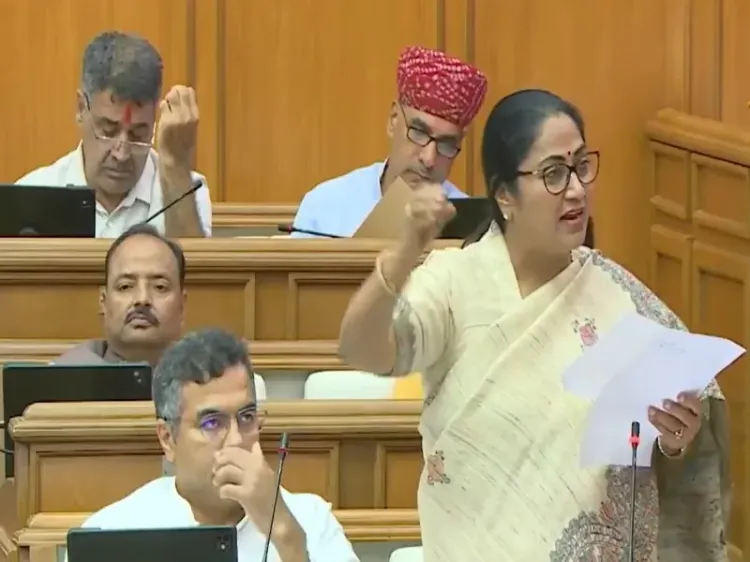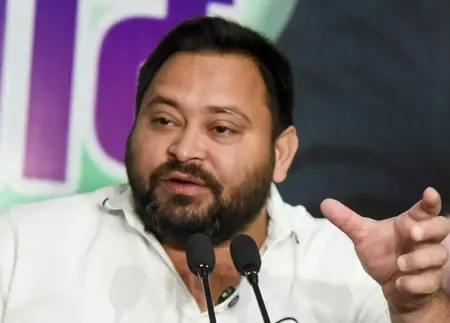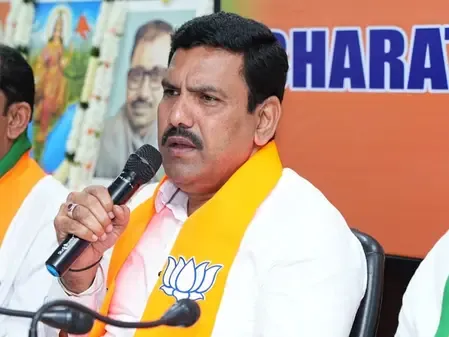Did the Delhi Assembly Pass a Bill to Create a GST Appellate Tribunal?

Synopsis
Key Takeaways
- 7% revenue increase in first five months of governance.
- Establishment of the GST Appellate Tribunal to enhance dispute resolution.
- Launch of GST Amnesty Scheme providing relief to taxpayers.
- Improvements in ITC claim periods and reduction in pre-deposit for appeals.
- Introduction of machine-tracking mechanisms for better accountability.
New Delhi, Aug 8 (NationPress) Emphasizing a remarkable 7 percent revenue increase in the initial five months of the Delhi government, Chief Minister Rekha Gupta spearheaded the passage of two significant GST Bills in the Assembly on Friday, facilitating the establishment of a GST Appellate Tribunal and the initiation of an amnesty scheme.
CM Gupta pointed out that Delhi's GST and VAT collections surged notably, reaching Rs 15,535 crore in the first five months of FY 2024–25, compared to Rs 14,500 crore during the same timeframe under the previous administration.
“A seven percent revenue increase in just five months showcases that these reforms are effective and indicates that the citizens of Delhi are responding positively to transparent governance,” she stated.
On Thursday, the Chief Minister introduced two legislative packages in the Assembly concerning approximately 60 amendments sanctioned in GST Council meetings, which include provisions for setting up the GST Appellate Tribunal and launching an amnesty scheme.
The amendments were presented through two targeted legislative packages. The first package, containing 45 amendments ratified in GST Council meetings from July 2023, October 2023, and June 2024, concentrated on extending ITC timelines, simplifying registration and return filing, establishing the GST Appellate Tribunal, and implementing an amnesty scheme for relief from interest and penalties.
The second package, approved during the 55th GST Council Meeting in December 2024, incorporated 14 amendments designed to enhance enforcement and procedural clarity, including penalties for non-compliance in tracking systems, clarifications on ISD credit distribution, the treatment of municipal funds, and streamlined appeal processes.
The Delhi Goods and Services Tax (Amendment) Bill, 2025 (Bill No. 04 of 2025) and the Delhi Goods and Services Tax (Second Amendment) Bill, 2025 (Bill No. 05 of 2025) were introduced on Thursday but discussed and approved on Friday.
Overall, these reforms extend ITC claim periods, reduce the pre-deposit for appeals from 10 percent to 7 percent, enhance dispute resolution, and introduce machine-tracking enforcement mechanisms, particularly in sectors like gutkha manufacturing, where the Centre mandates unique identifiers on each packet for accountability.
“Previously, tracking the production or sale of gutkha was nearly impossible. Now, with machine tracking and unique identifiers, the government will ensure full transparency,” the CM elaborated in the House.
The GST Amnesty Scheme alone has generated Rs 218 crore in collections for Delhi as of March 31, 2025, a clear indication of taxpayer responsiveness to the reforms, she noted.
The CM also clarified common misconceptions regarding Delhi’s revenue authority, stating: “Delhi is a Union Territory. The Centre handles income tax, customs, and corporate taxes, not the Delhi Government. We manage GST, VAT, Excise, and Stamp Duty.”
She expressed gratitude to the Central government for its ongoing support in covering the costs of law enforcement, pensions, Metro operations, and major urban development initiatives.
“From Delhi Police salaries to pensions amounting to Rs 6,000 crore, and from Metro Rail to Central Universities, Delhi receives more than its fair share. The Centre ensures the smooth operation of Delhi, irrespective of political dynamics,” she affirmed.
The CM also commended the Revenue Department for its diligent execution of these complex reforms and reiterated her government’s vision for a compliant, efficient, and business-friendly taxation landscape. “The Delhi Government, under my leadership, is devoted to establishing a robust tax ecosystem that fosters both governance and growth,” she concluded.









